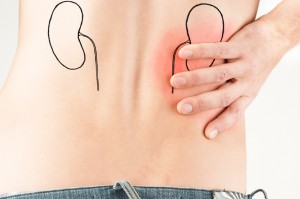What is Renal Disease?
Renal disease, also called kidney failure or chronic kidney disease, refers to the loss of function in the kidneys. The kidneys fail gradually and the result is the buildup of excess fluid and waste in the body. Although the early stages of renal disease may not cause obvious symptoms, early detection is essential since symptoms may not persist until kidney function is almost completely gone.
Causes of Kidney Disease
Chronic kidney disease is most commonly caused by type 1 diabetes, type 2 diabetes and high blood pressure. Additional causes are lupus, HIV, congenital birth defects, urinary tract infections, drug abuse and polycystic kidney disease. Not getting treatment for any of these problems will only put the patient at a higher risk for developing kidney disease. Certain lifestyle choices can affect a patient’s risk for kidney disease. To decrease their chances of developing chronic kidney disease, patients can avoid smoking and maintain a healthy weight by eating a well-balanced diet and scheduling regular bouts of exercise.
Symptoms of Renal Disease
The signs of chronic kidney disease vary from person to person. The severity of the symptoms increase over time as the kidneys shut down and are unable to remove waste from the body. In some cases, kidney failure can become life threatening if left untreated. The first symptoms that many patients notice are feelings of lethargy and weakness. The patient may note a change in appetite and have stomach complaints such as nausea, vomiting, and cramping.
Additional symptoms include:
- Headaches
- Itchiness/dry skin
- Body aches and pains
- Decreased sexual function
- Swelling
- Shortness of breath
- Difficulty sleeping
- Hiccups
When a doctor suspects a patient may have chronic kidney disease, he will order tests to determine the level of kidney function. Blood pressure is closely monitored during this time to keep it in an optimal range. Diet, exercise and medications are used to manage high blood pressure.
Physicians look for signs of decreased kidney function by utilizing blood and urine tests. Blood tests measure the amount of waste products that may be building up in the body while urine tests checks for proteins that could have passed into the urine. Imaging scans can be ordered to check the size of the kidneys while a kidney biopsy allows doctors to remove a small sample of the kidneys to send out for further testing.
Complications from Kidney Disease
The final stage of chronic kidney disease is referred to as end-stage renal disease or ESRD. Once a person reaches this stage, she must either undergo dialysis or need a kidney transplant. There is no cure for chronic kidney disease and the rate at which the person’s condition deteriorates will affect how long it takes to lose complete kidney function. The underlying cause of the kidney disease and how a person manages her disease will affect the timeline for when end-stage rental disease is reached.
Although there’s no cure for end-stage renal disease, doctors will recommend medications to prevent further damage from the disorder. If you or a loved one are experiencing any of the above symptoms, contact us or another physician today.




